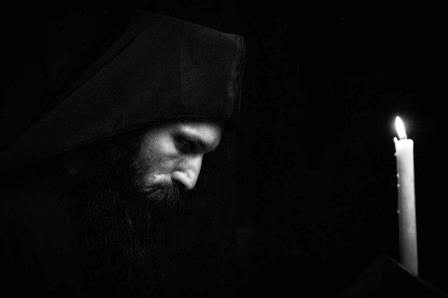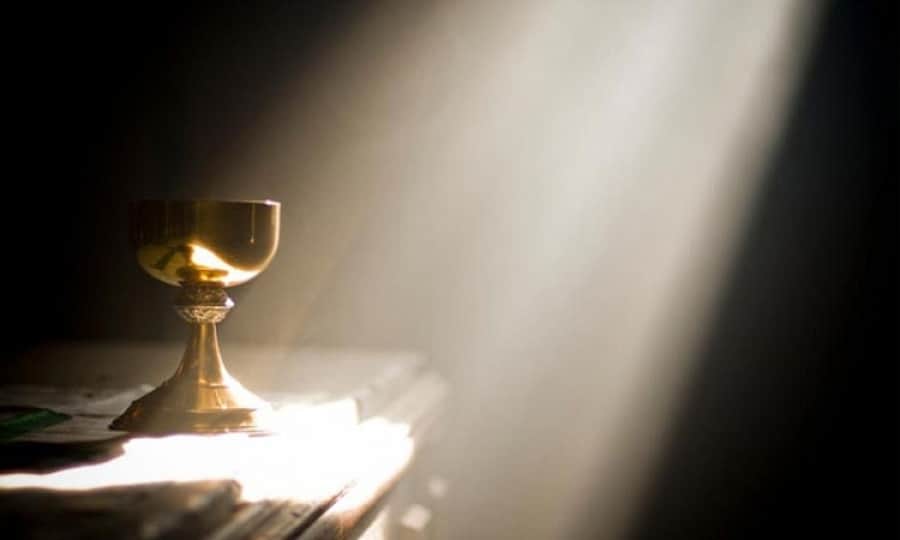
Christ Needs to Be Born Again!
Christmas constitutes the revelation of God’s incarnation, which in turn amounts to God’s taking on everything that genuinely makes up humanity: body and soul, intellect and emotions, culture and history. And since humanity is at once a given, an emerging, a fixed and an ongoing reality, it follows that Christ’s birth took place once and for all, on the one hand, but paradoxically needs to take place time and again, on the other.
Divine Incarnation in the person of Jesus Christ is simultaneously an event and a process; it happened in a unique way, and it keeps on happening in different ways. The latter is done through all facets of Christian living and experience, but perhaps most significantly through theology. It is theology that is called upon to incarnate, enflesh and embody the Word of God through the language – both in the narrow and the broad sense of the word – of each and every age, of each and every place and culture. The problem, however, is that theology many a time forgets that it must go on giving birth to the Word of God instead of making an absolute of its own words – the words of a given age, place, and culture for the sake of a given age, place and culture, and not for all eternity. Otherwise, it turns its own creative work into a dead-end.
Reaffirming Freedom in the face of Individualism
Unfortunately, modern Orthodox theology is full of such dead-ends. Since the late 19th century, the rapidly changing conditions of modern life have occasioned a series of paradigm changes in Orthodox theology; changes that in one way or another intended to address the most pressing issues of the last 150 years, namely, the issues of individualism and freedom. To be sure, these issues were tackled to some extent and for certain periods of time, but the proposed solutions and answers have been thenceforth reproduced as divine decrees, thus overlooking not only the fundamental historicity of theology but also the intrinsic historicity of human life. But which solutions/answers am I referring to? Which are the paradigms of modern Orthodox theology that have turned into obsessions or even nightmares – hardly conducive to anything creative, innovative or even viable anymore? The following could be regarded as the most indicative cases: communitarianism, personalism, spirituality-mysticism, Orthodoxism, elderism, eschatology-talk, therapeuticism and God-counselling. Although all these paradigms were based on perfectly fine aspects of Orthodox experience, they were applied with the intention to cover the entire spectrum of Orthodox faith and behaviour. More specifically, beyond a certain point these paradigms were interested not just in solving the problem of individualism and/or freedom but in reshaping the whole life of the Church, introducing thus an exclusivist and by extension limited interpretation of Church tradition.
Communio and Prosopon
Communitarianism has been especially prominent in modern Orthodox theology, investing ostensibly on the cardinal importance of communio. It came to celebrate Orthodoxy as an alternative to the social (and political) predicament of the West, while it has been identified at several levels, such as the community in general, the State-Nation in particular, and most favourably the parish – although the latter, in the form of parishionism, can be traced in a number of paradigms. Apart from the fact that this paradigm idealises social patterns of the past – if there were ever such patterns truly operative in the past – and also the fact that in extreme cases the paradigm led to outright distortions like ethnophyletism, the problem is that ultimately Orthodox communitarianist theology introduced a kind of confrontational individuation – between peoples, cultures, faiths, etc. – while it was claiming all along to overcome the side-effects of individualism. Close in many respects to communitarianism is the paradigm of personalism, another long-standing ‘holy notion’ in modern Orthodox theology. Prosopon has been regarded as a kind of key to all mysteries in theology, since it allegedly reflected and encompassed the proper ontology behind traditional theological discourse. However, the dynamic notion of relationality that the term connoted, although quite pertinent to combat the fragmentation of individualisation at the level of the particular, eventually gave rise to a sense of freedom that quickly turned into shallow relativism.

Spirituality and Elders
Mostly after WWII, Orthodox theology will be lured into the arena of spirituality-mysticism as the latter was promoted or facilitated by ‘New Age’, ‘New Religious Movements’, ‘Alternative Spirituality’ or ‘New Religious Consciousness’. Combined with the communitarianist ethos and the sophistication of personalism, spirituality-mysticism would create almost irresistible formations within the modern Orthodox world; formations that would appeal to the social, personal and spiritual sensitivities of the Orthodox faithful. Notwithstanding that, spirituality-mysticism was nothing more than an Orthodox adaptation of or assimilation to the prevailing Zeitgeist, having little to do with a genuine reconnection with living tradition. At the same time, this paradigm could be seen as a much-needed escapism in face of the disillusionment of the post-war period; an escapism that became a major problem as people started getting complacent. This was in turn the best possible substructure for the flourishing of the phenomenon of elderism, whereby the faithful would come to confuse the charisma of spiritual guidance with mental and psychological manipulation. The latter, sadly, was occasioned by the disappointment that the faithful felt with their respective Church hierarchies and authorities – not to mention that in many ways it was these very hierarchies and authorities that expected through elderism to keep some kind of control over the masses.
From the Eschaton to Therapy
All or some of the above would combine time and again in this or that type of Orthodoxism, namely, the paradigm of Orthodoxy as an identity or a cultural/religious identification. The problem with this paradigm was and still is its specific propensity to ideology and by extension fundamentalist exploitations and/or applications of ideology politics – apart from the very concerning fact that it freezes Orthodoxy in some past golden age and presents that version as a blueprint for eternity. Perhaps the most refined paradigm of all has been that of eschatology-talk, with its range of different aspects – eucharistic, social, monastic, etc. – for this paradigm really brought in an air of reinvigoration to Orthodoxy and enabled the latter to engage in dialogue with both Protestant and Roman Catholic theological developments. However, the category of Eschaton, with all its elusiveness, very easily could serve purposes of the ecclesiastical status quo by postponing solutions or justifying conditions with regards to Church problems. But because the Church could not be seen as not solving problems, therapeuticism made a triumphant entrance by claiming to have captured the quintessence of Orthodoxy as personal therapy of body and soul. Once again everything was internalised and its socio-economic as well as political contextualisation erased.

What nowadays is put forward in Orthodox theology as the most updated paradigm is a belated version of counselling, what I would dub as God-counselling, which consists in raving meditations on how to live, how to love, how to die, how to behave, how to do this and how to do that. And to make things even worse, the alternative to this is a neoliberal theology of human rights that proclaims the western agenda of humanism and human rights as the apex of divine revelation, sanctifying thus the political correctness of the world instead of been the prophetic critical voice of the world. Nevertheless, it is hopeful that Orthodox theologians have realised that this series of shifts signifies the inadequacy of all paradigms adopted, insofar as they have turned into ideological discourse and total explanations of the modern human condition.
Equally hopefully, we are close to acknowledging that theology should once again focus on addressing very specific issues – not all issues – and never stop giving birth to Christ, again and again, till the end of history!
ABOUT | INSIGHTS INTO GLOBAL ORTHODOXY with Dr Vassilis Adrahtas
"Insights into Global Orthodoxy" is a weekly column that features opinion articles that on the one hand capture the pulse of global Orthodoxy from the perspective of local sensitivities, needs and/or limitations, and on the other hand delve into the local pragmatics and significance of Orthodoxy in light of global trends and prerogatives.
Dr Vassilis Adrahtas holds a PhD in Studies in Religion (USyd) and a PhD in the Sociology of Religion (Panteion. He has taught at several universities in Australia and overseas. Since 2015 he has been teaching ancient Greek Religion and Myth at the University of New South Wales and Islamic Studies at Western Sydney University. He has published ten books. He has extensive experience in the print media as editor-in-chief, and columnist, and for a while he worked as a radio producer. He lives in Sydney, Australia, his birthplace.


